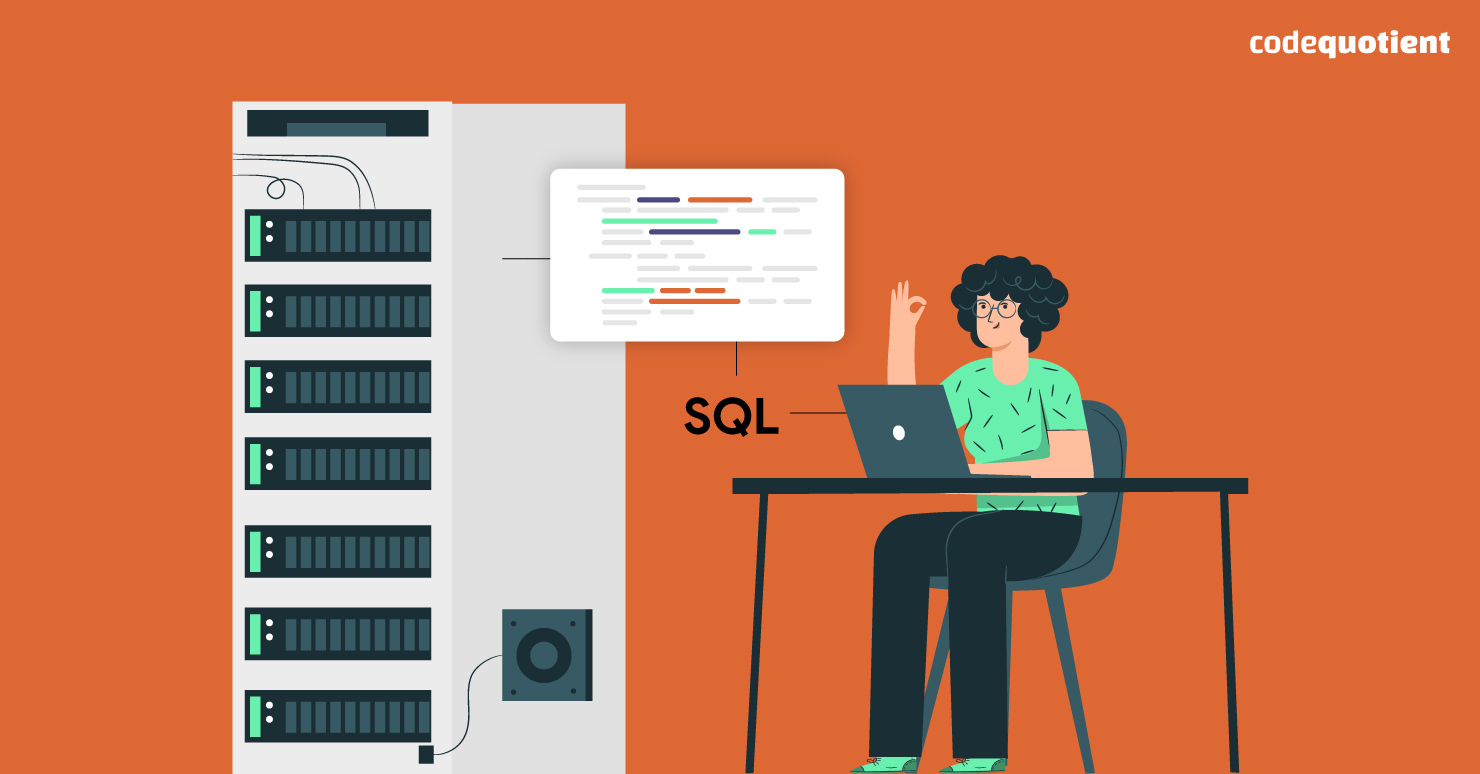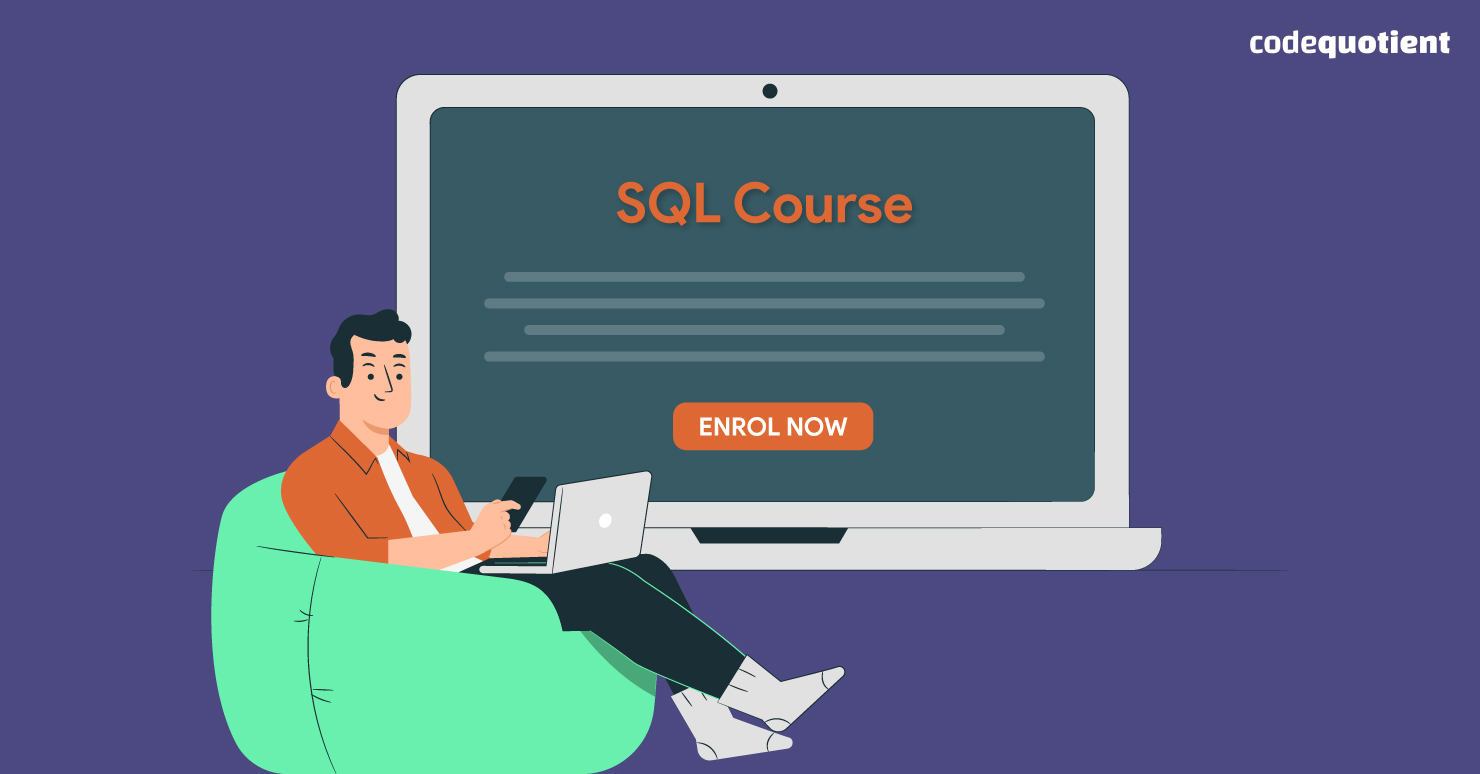Say you work as an IT executive, and your primary job is data analysis. The data analysis process starts with receiving data from developers. So, your analysis depends on the developers. If they delay sending you the data, your work gets delayed too. Enrolling in an SQL course is the solution to this scenario. Then you can retrieve data by yourself from the company’s SQL database.
In this post, we’ll tell you why you should enrol for an SQL course. But before that, let’s understand SQL.
What is SQL?

SQL, or Structured Query Language, is a standard language for managing relational databases. The domain-specific language is designed to effectively search, insert, modify, update, and delete database records.
Using SQL, you can also store data in databases, manipulate them, and retrieve them from databases.
SQL is pretty similar to Excel. However, there are two significant differences.
- SQL is more beneficial when you have massive datasets. Excel or Google Sheets may be challenging to handle if faced with 100,000+ row datasets. But SQL can easily handle even 10,000,000 rows.
- Accessing your data in SQL is different from Excel. While Excel has a user-friendly interface, you must write queries in SQL. Taking up an SQL course will help you learn how to write SQL queries.
Top 7 Reasons to Learn SQL
Here are the top 7 reasons you should enrol for an SQL course.
1. Manage massive amounts of data
As already mentioned, SQL can handle a humongous amount of data, unlike spreadsheets.
In the real world, spreadsheets work best for small to medium-sized businesses. But enterprises with huge data require SQL for ease of management, and large data pools require faster and greater performance solutions.
Hence, SQL is the solution to handle small to large-sized datasets efficiently.
2. Quick data access
In SQL databases, data is usually stored in a systematic and organized way. So, when users want to access data, they can do so within seconds. With such quick data access, you can save time and work more efficiently.
3. Standardisation
SQL was developed in the 1970s and has been used for over four decades. Not only this, there have been no changes in the SQL commands and syntax since its development.
In short, SQL is a standard language that will be used even in the future. So, if you join an SQL course and learn it today, you do not have to upgrade your SQL knowledge much in the coming years.
4. A better understanding of data visualization tools
Most data visualization tools like Tableau and Google Studio works on SQL. So, learning SQL will help you understand these tools better. For instance, when you create a report in Google Studio, you can understand the background functions of the tool.
Knowing SQL will give you extra knowledge of data visualization tools. And this additional knowledge can be useful if there are issues like a broken report.
Furthermore, when connecting your SQL database to Google Studio, you get two options:
- Connect the tables as they are; or
- Apply custom query
With the custom query option, you can easily and flexibly access, retrieve, and transform data. It is more advanced than transforming data in Google Studio.
5. A highlight in your CV
Once you complete an SQL course, your resume will look better.
SQL is a highly demanded skill in almost every industry. SQL is used everywhere in IT, consumer retail, SaaS, or other industries.
Having SQL in your resume is a plus point when you apply to businesses that use Excel daily for customer or sales data analysis. It can make your resume stand out from the rest.
Hence, you will have a better chance of getting hired among the other applicants. Also, you can negotiate for a higher salary.
6. Faster data combining from multiple sources
Learning SQL can make it easy for you to merge multiple data sources.
While without SQL, the process becomes quite time-consuming, SQL combines data from multiple sources. Using the UNION operations, mention the fields or databases to combine and make it happen seamlessly.
Enrolling in an SQL course can help you understand this specific reason better.
7. Easy to learn
Students often avoid coding because they assume it to be complicated. But SQL is easy to learn. You can enrol in an SQL course without any basic coding knowledge and complete it.
To start applying SQL in your regular tasks, you must learn 10-15 specific keywords and a few simple syntax rules.
However, when you start combining these syntax rules, SQL can get tricky. So, the better you grasp the basics, the easier it is to solve advanced problems.
Also, SQL is the basic language that makes you more ready to learn advanced coding languages like Python, R, JavaScript, etc.
Learning SQL also makes it easier for you to understand the workings of these advanced languages.
Take the First Step to Coding with CodeQuotient
SQL is the foundation. It is the first step toward coding.
When you dive deeper into coding, you can automate tasks, develop projects, run predictive analytics projects, and machine learning.
All in all, coding opens a plethora of career opportunities. It makes you an ideal fit for jobs in various industries.
So, for better career growth, enrol for an SQL course with CodeQuotient.
CodeQuotient ensures preparing students for their professional life. It offers project-based learning through live challenges, peer learning, real-time mentoring from industry experts, and strong faculty support.
With CodeQuotient’s SQL course, you will not only learn SQL through texts, but you will also gain hands-on experience by working on live projects.
Need more information? Reach out to the CodeQuotient team now!




